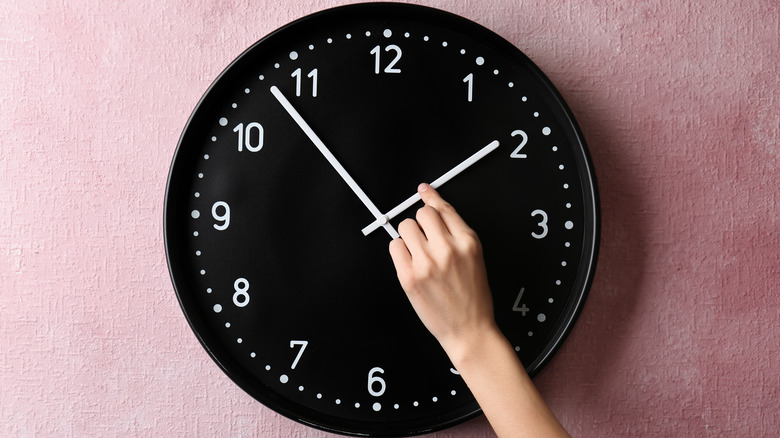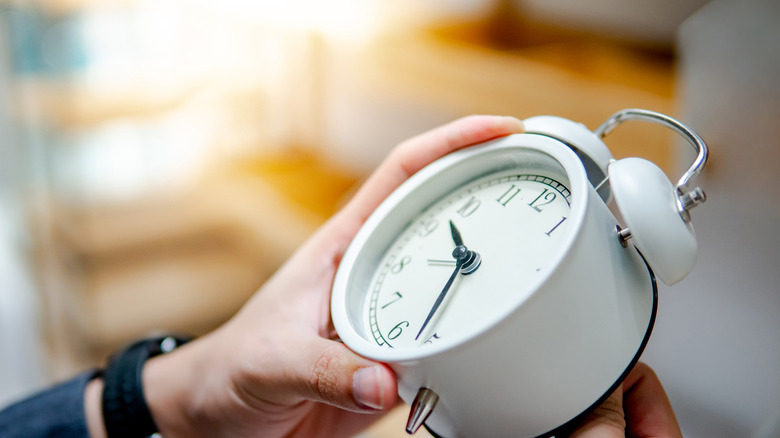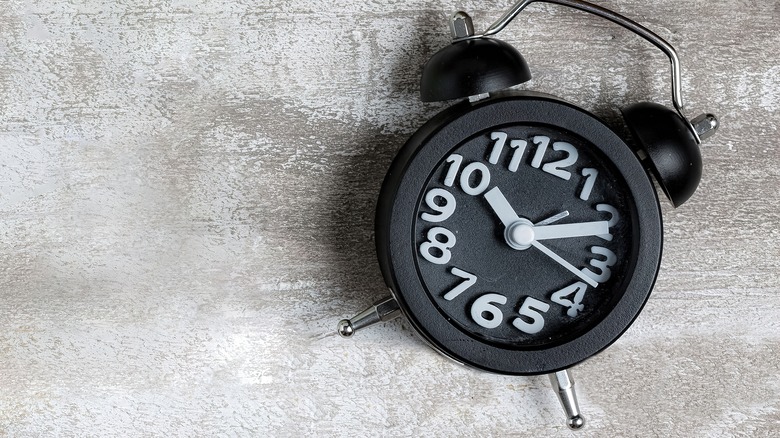Why People Want Daylight Savings Time To Become Permanent
Most people believe daylight savings time started to give farmers an extra hour to work. But the truth is far from it — farmers are one of the groups of people loudly asking to get rid of the biannual clock change.
The general idea was to move an hour of daylight people aren't using in the morning and add it to the end of their day. This actually does have a positive economic impact for some industries, though none of them include agriculture. "Americans really do leave their homes when there is more sunlight at the end of the day," said Michael Downing, a lecturer at Tufts University and the author of "Spring Forward: The Annual Madness of Daylight Saving Time," told The New York Times. "We go to the parks, and we go to the mall ... Daylight saving increases gasoline consumption."
Jeff Miller, former chairman for a lobbying group called the Association for Convenience and Fuel Retailing, said in 2010 that the convenience store industry had an estimated additional $1 billion in annual sales, according to The New York Times. The boost in revenue came after 1986, when the group had lobbied to have an extra month added to daylight saving.
In 1986, the start of daylight savings shifted from the last Sunday in April to the first. Today, daylight savings starts even earlier; we "spring" forward the first Sunday in March and "fall back" the first Sunday in November.
Daylight saving does more harm than good
There's also been the claim made that an extended daylight saving time saves people energy costs. In this The New York Times article, a 2008 Department of Energy report was cited saying daylight savings only saved Americans 0.5 percent on their energy bills. Meanwhile, a second study by the National Bureau of Economic Research found the exact opposite: residential electricity demand went up about 1%, and also found an increase in pollution emissions.
Plus, changing everyone's sleep schedules twice a year can be deadly. In 2020, the American Academy of Sleep Medicine called for the time change to be abolished. Messing with the body's already-established sleep schedule could lead to an increased risk of stroke, miscarriages, workplace accidents cardiovascular events, and even traffic accidents, The Washington Post reports. "Not only are we sleep deprived but we're trying to force our brain into a little bit more of an unnatural sleep schedule," Dr. Rachel Ziegler, a physician in the Sleep Medicine Department at Mayo Clinic Health System, told The New York Times. "If you ask any sleep specialist, I think most of us would be in favor of a permanent schedule."
According to one study, our bodies don't actually adjust to daylight savings time. The study suggests we end up losing almost 20 minutes of sleep a night trying to adjust to daylight savings, via The Washington Post.
COVID-19 is a reason why more people want to make daylight savings permanent
Popular opinion seems to be, though, that daylight saving should stay permanently. Currently, Arizona, Hawaii, and several U.S. territories have already done away with changing their clocks.
As of November 2021, the Department of Transportation reports that 29 states so far have introduced legislation that would abolish the biannual time-change, NPR reports. Planning has even gone so far as states in certain regions, like New England or the Midwest, have coordinated switching to "minimize disruptions." What they need in order to move forward, though, is an act from Congress. Senator Ron Wyden of Oregon said in a statement about the bill that "springing forward and falling back year after year only creates unnecessary confusion while harming Americans' health and our economy, according to The New York Times.
Happiness and health have been a major concern as we enter another year of the COVID-19 pandemic. "The pandemic made us think about happiness," Scott Yates, a prominent lock-the-clock advocate from Colorado, told The Washington Post, "and [that] day-to-day mental health really is important, and we should do everything we should to promote that." Especially after working from home and the health risks indoor gatherings had pre-vaccine, spending time outdoors was the safest thing anyone could do, and is easier to do with an extra hour of sunlight in the afternoon.


